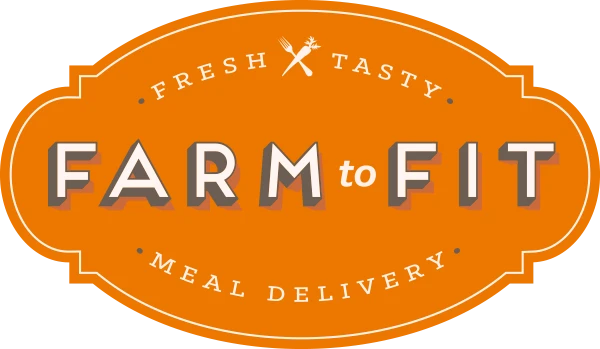Are Chickpeas Whole30?
Posted on
Whole30®’s legume laws explained
Are Chickpeas Whole30® approved? It can be hard to keep track of all the different rules and regulations that come with the Whole30® plan, especially since the program is always being studied and reevaluated by both the program's nutrition experts and the health community at large.
While the majority of Whole30®'s rules and regulations have remained the same, a big change was announced earlier in 2021 that had many Whole30® followers excited for new whole food options: some peas are now allowed.
But are chickpeas Whole30® approved now? Farm to Fit found out!

What is Whole30®?
If you've made it this far, you might already know, but here’s your refresher: The Whole30® is a diet plan that focuses on re-establishing our relationship with nutrition by cutting out processed foods, grains, legumes, dairy, sugar, and alcohol for a period of thirty days. After thirty days, eliminated food groups are reintroduced into the diet one by one to single out any allergies or intolerances.
Whole30® can be tough due to its strict ruleset, but its limited timeline makes it more manageable. There is still very limited scientific study available on the effects of the Whole30® plan. If you’re interested in trying it but overwhelmed by all the rules, opting for Farm to Fit’s Whole30 meal delivery is a great way to take the guesswork out of this intriguing diet plan. Our chef-prepared ready-to-eat meals just need two minutes to be heated and then they’re yours to enjoy!

What Whole30® Rules changed this year?
In January of 2021, founder Melissa Urban posted an update to the program's blog clarifying a change to the Whole30® rules: peas will be considered compatible with the program from here on out.
“While botanically a legume, over the years I have rarely seen peas present problems upon reintroduction. (Honestly, I can’t think of a single anecdote, although I know statistically peas can’t work for 100% of people.) Most varieties of peas are lower in FODMAPs and phytates than other forms of legumes, and pea protein is considered a hypoallergenic protein source by functional medicine doctors.”
The Whole30® has notoriously excluded all legumes (a group of plants that grow their seeds in pods) from its list of approved foods since its inception. Common legumes like soybeans, peanuts, and lentils may be staples of many diets around the world, but Whole30® still asks that you eliminate them for the 30 days of your program to ensure you aren't allergic or sensitive to them.
After study, however, it would seem that certain legumes like green beans and most peas, do not pose a significant risk of allergic reaction, even in those who may be sensitive. But are chickpeas included in these new exceptions?

So are chickpeas Whole30® now?
Nope. Unfortunately, chickpeas are still not allowed on the Whole30® plan. You might also know chickpeas by their other name, garbanzo beans.
While all peas are legumes, not all legumes are peas. The rule change allowing peas only makes sense with the design of the Whole30® plan because they lack many of the common GI allergens or irritants that other legumes like beans have.
Chickpeas are a good source of carbs, fiber, protein, and healthy fats, but they are much more botanically similar to beans than they are to peas. The carbs they provide can fuel bad gut fauna, and the protein benefits are often overstated. Legumes are seeds, and as such are often tough enough to withstand our digestive acids to varying degrees, making them less nutritious than their packaging may claim.
Chickpeas are also packed with phytates, which are anti-nutrients that attract and absorb healthy minerals in our food that our body needs for proper function. There are preparation methods that mitigate phytate content, but none that are 100% effective.

Don't give in to legume gloom
If you're feeling nervous about giving up chickpeas or legumes in general, just remember it's only for 30 days! One of the most relieving things about the Whole30® is that at a certain point, you stop restricting your diet and start reintroducing foods!
If garbanzos are a big enough staple of your diet that even 30 days seems like an impossible task, don't forget that the Whole30 isn't for everyone. There are dozens of different diet plans out there, you just need to find the one that's right for you!
Still at a loss without legumes?
Let Farm to Fit handle the Whole30® for you! Our Whole30® approved ready-to-eat meals are chef-designed to be fresh, delicious, and 100% compliant with the program's rules and regulations. Order your Whole30 meal delivery today!
